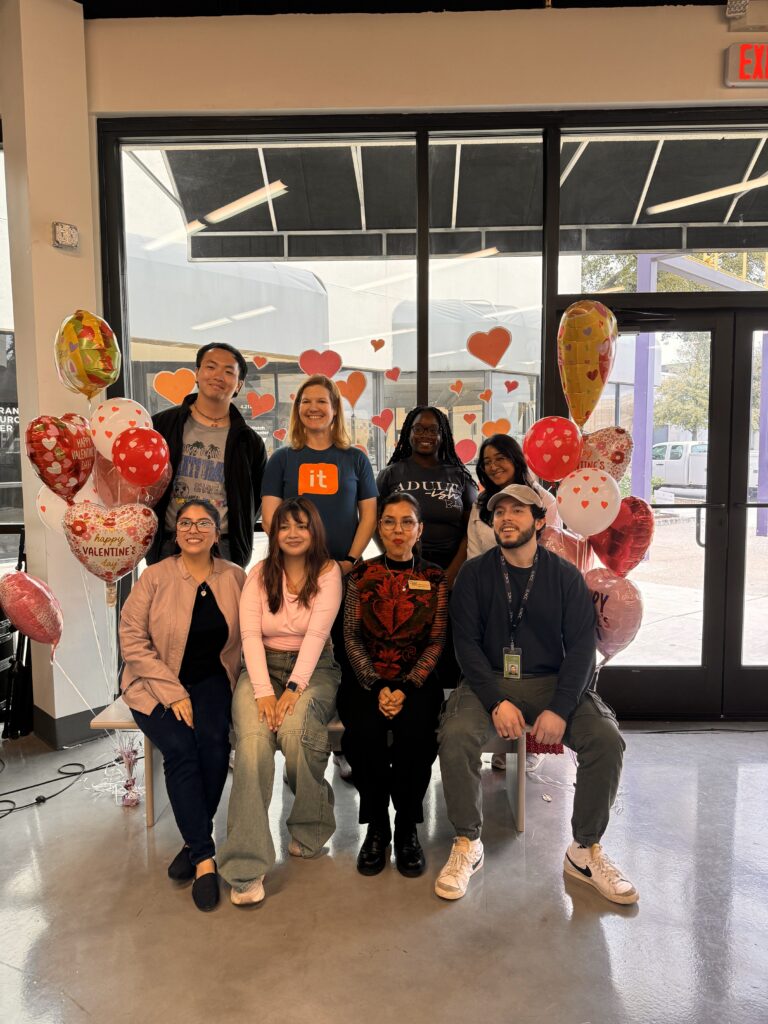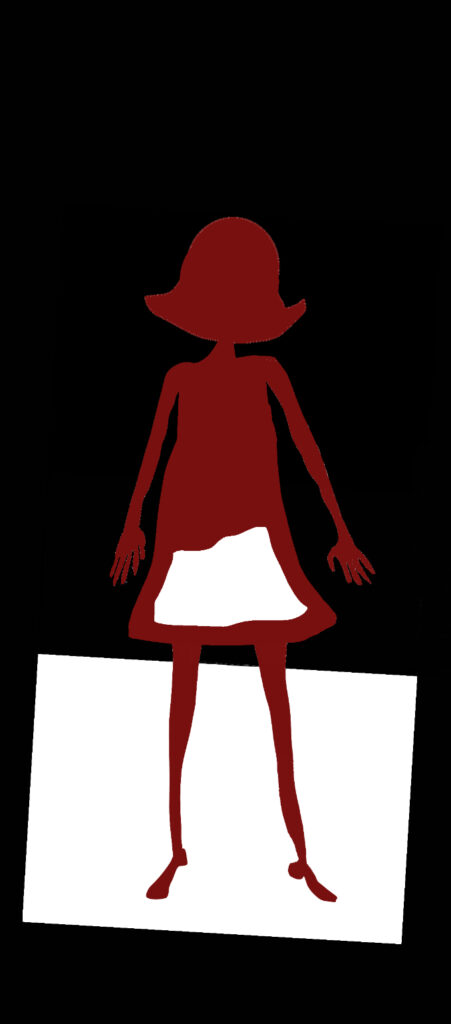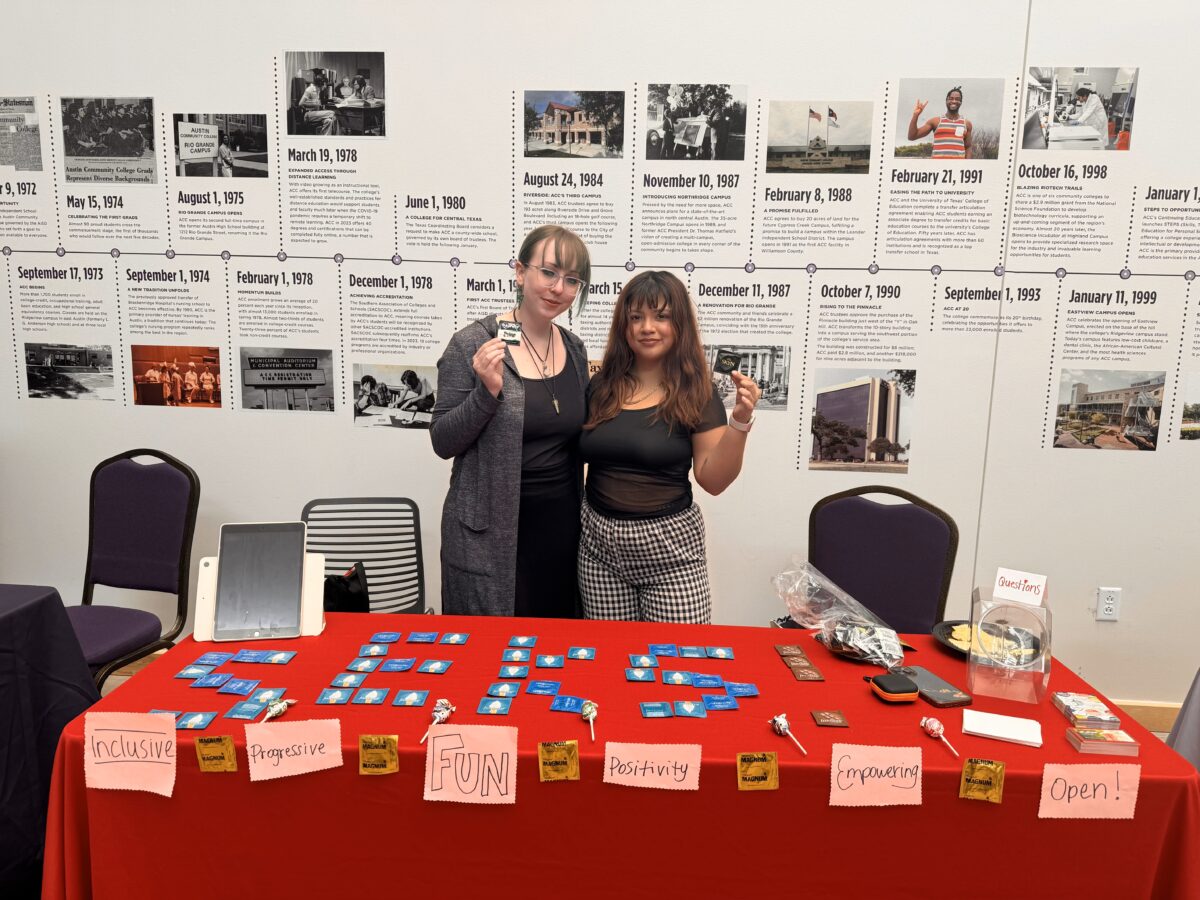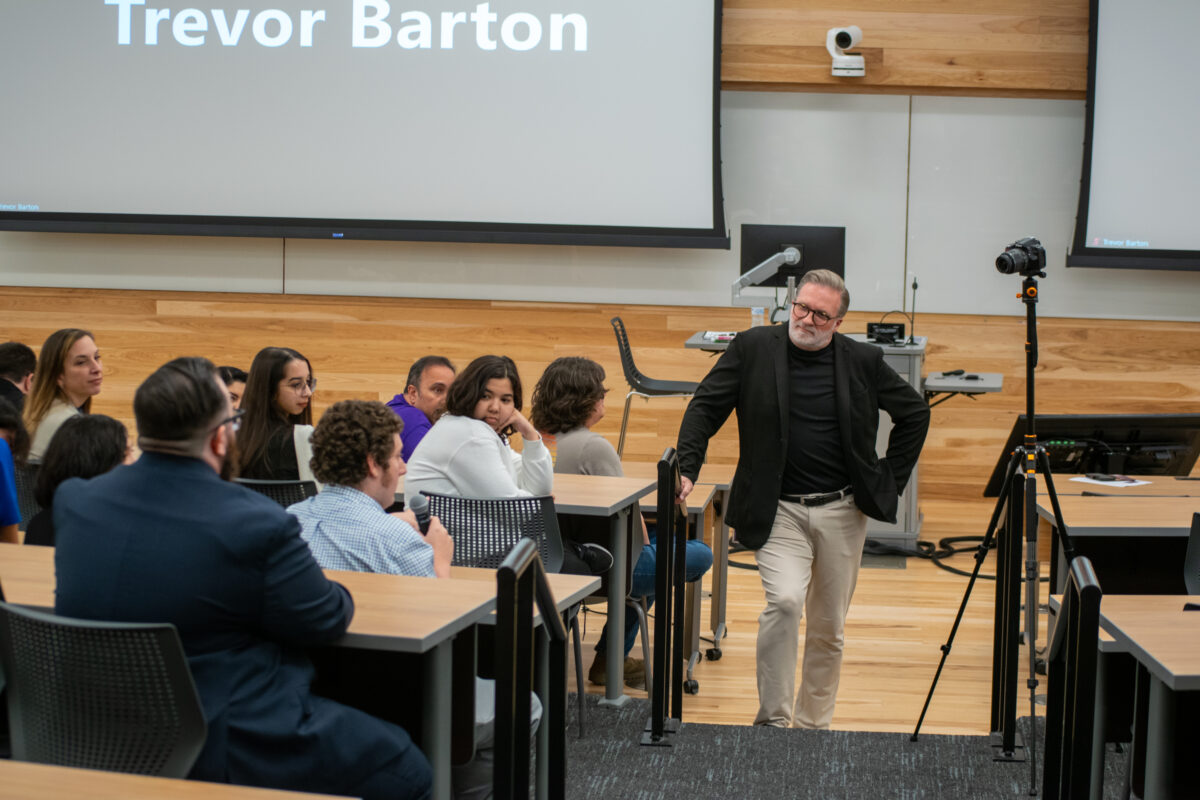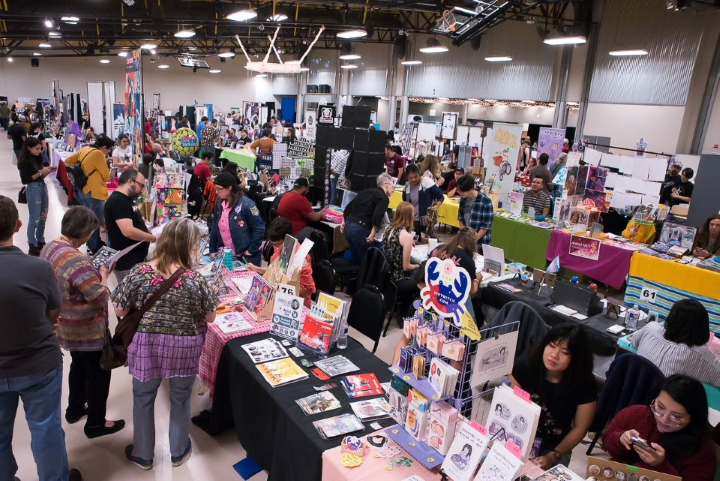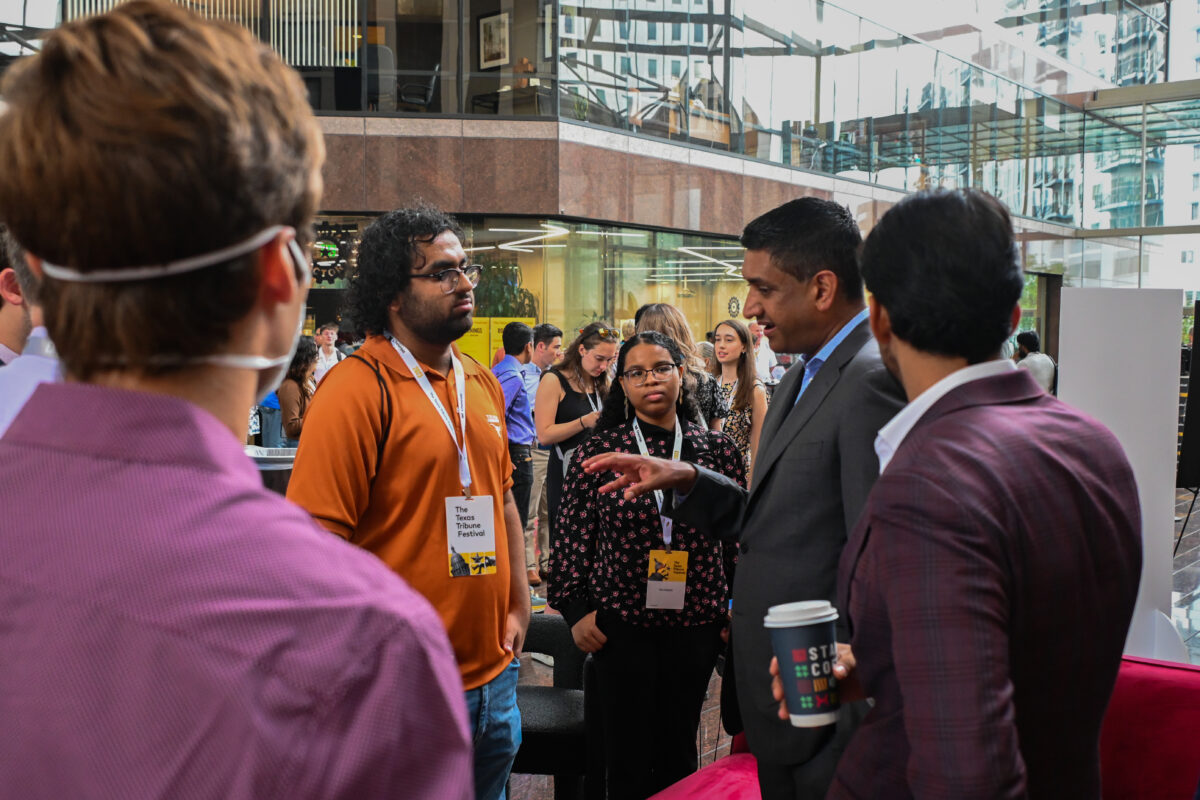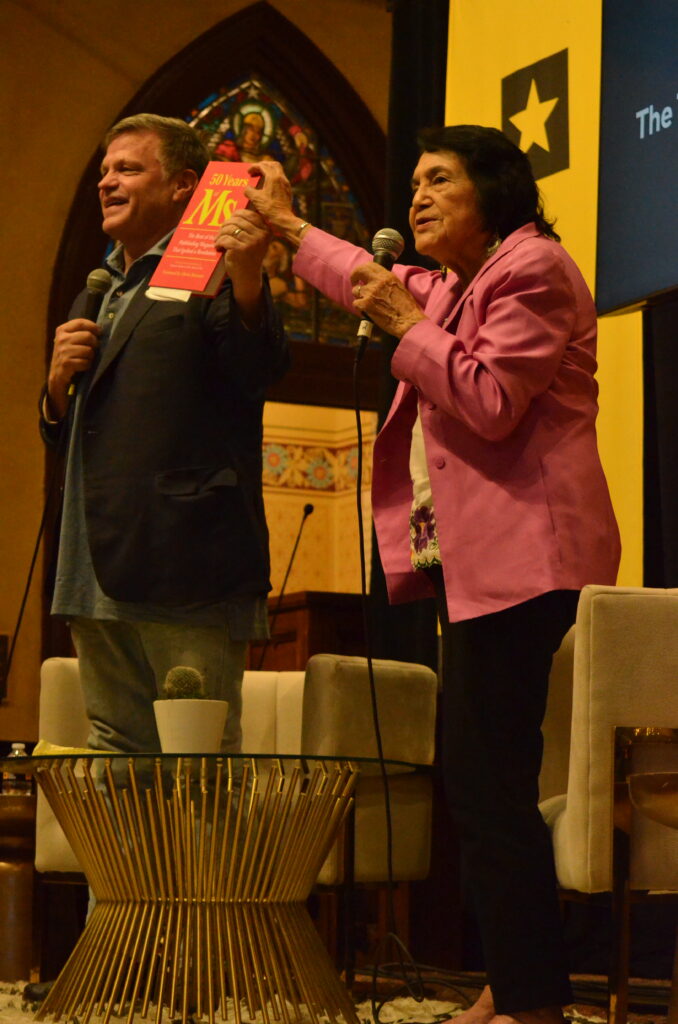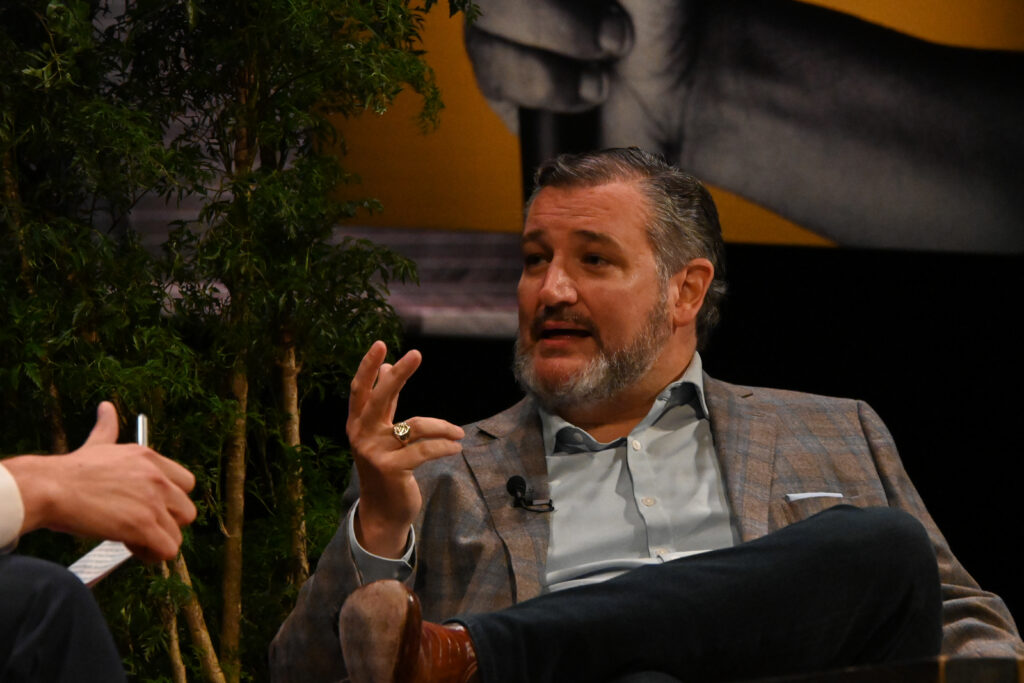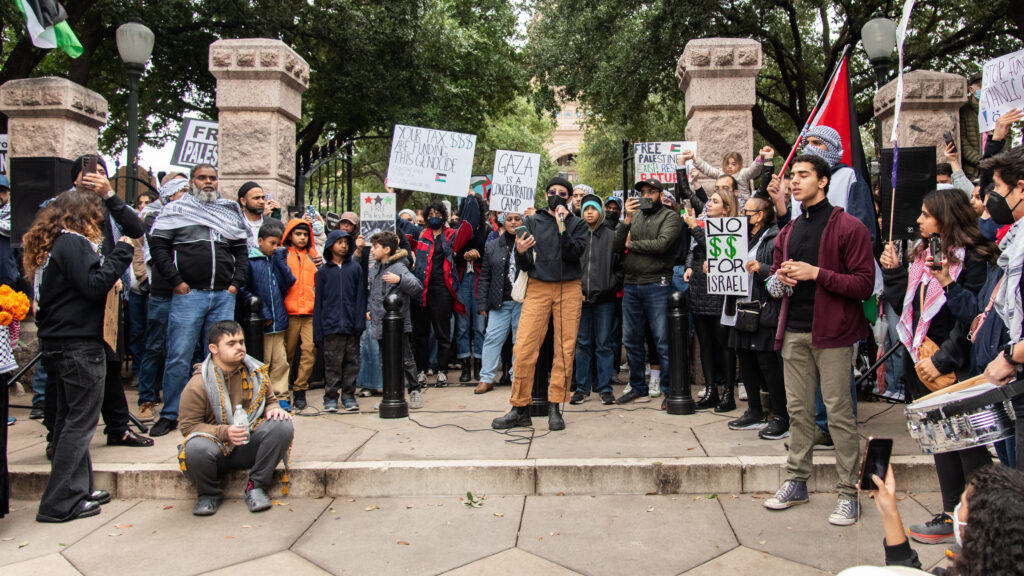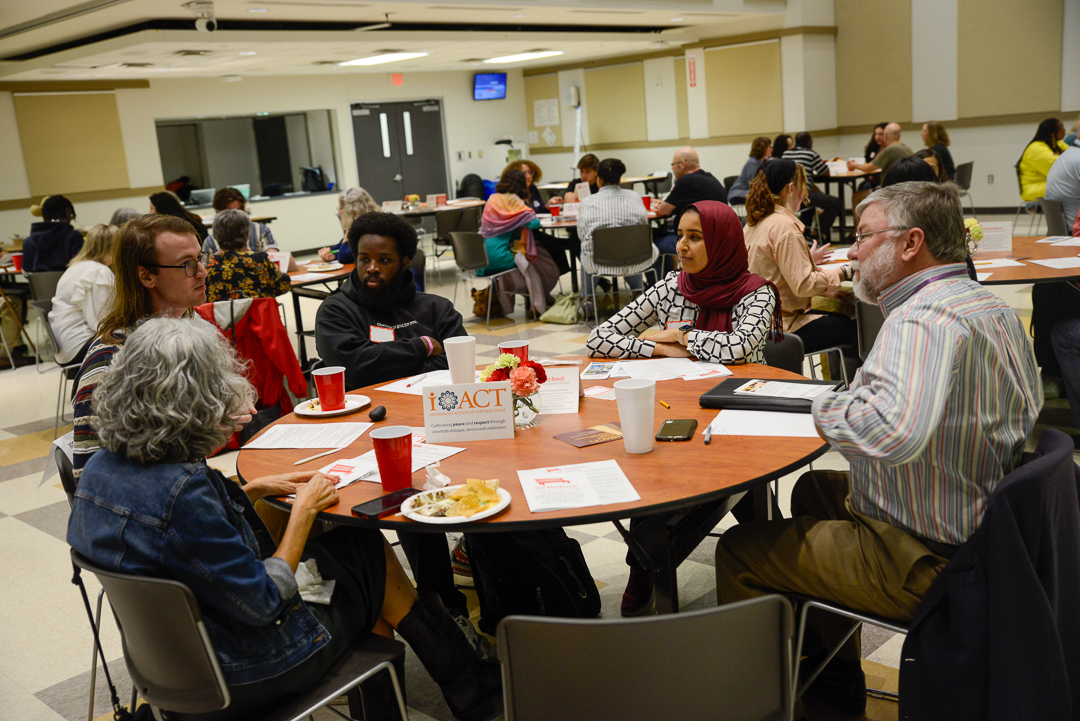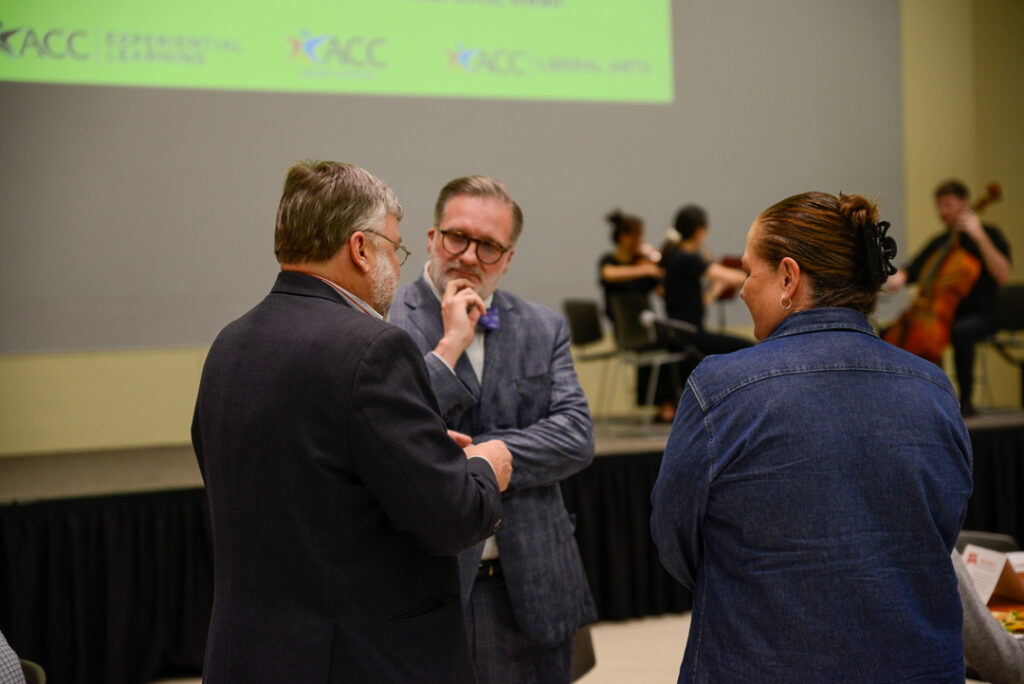By Dash Kostka
We can hardly believe it either, but it’s already 2024, which means it’s an election year in America – and more importantly, the state of Texas!
How Do I Vote In the Primary?
If you want to vote in next month’s primary election, here is a step-by-step process for doing so:
1. Register to vote.
Unfortunately, you needed to have already registered to vote by Feb. 5 of this year to participate in the March primary. If you forgot to register, you should still do it anyway. You still have plenty of time to get registered to vote before the November election, or even the May primary runoffs.
If you were able to vote in recent Texas elections such as the 2022 midterm elections or the 2020 election, then you are almost certainly still registered to vote (you do not have to “renew” a voter registration). You can check your voter registration status by going to https://www.texas.gov/living-in-texas/texas-voter-registration/.
2. Figure out your method of voting.
There are three main ways for you to cast your vote in next month’s primary:
- In-person Election Day voting, which will take place on Tuesday, March 5. Polls will be open from 7 a.m. to 7 p.m. On Election Day, you cannot be denied the right to cast your ballot after the polls close as long as you are in line by 7 p.m.
- In-person early voting, which started on Feb. 20 and will end on March 1. Polls will be open at early voting locations from 7 am to 7 pm. unless it is a Sunday, when polls will only be open from noon to 6 pm.
- Voting by mail. In order to successfully request a mail-in ballot, you need to meet very specific requirements, such as being permanently out of your home county. Voting by mail is risky, because there are many different ways that a person can invalidate their ballot, such as forgetting to write the date. Your ballot is also not guaranteed to be counted even if you send it in the mail before election day, because it must actually arrive by the time the polls close on Election Day. Voting in-person is usually the safest option to ensure your vote is counted, but if you feel your only way of voting is by mail, you need to request a mail-in ballot by Feb. 23.
3. Have your Photo ID ready.
The state of Texas requires all registered voters to show one of seven forms of Photo ID in order to vote:
- A state driver’s license;
- A Texas election identification certificate;
- A Texas personal identification card;
- A Texas license to carry a handgun;
- A U.S. military ID card with a personal photo;
- A U.S. citizenship certificate with a personal photo;
- A U.S. passport.
A Student ID is not considered a valid form of voter ID in Texas. If you don’t have an approved photo ID, you can cast a “provisional ballot,” but it will only be counted if you provide the proper identification within six days. You can also cast a ballot through a tedious process called “Reasonable Impediment Declaration,” about which more information can be found at vote.org.
4. If you have a disability, know your rights at the polling place.
If you are unable to walk into the polling place due to a disability and/or a medical issue, federal laws passed in the 1990s require polling locations to offer “curbside voting.” Some polling places will offer designated parking spaces for curbside voters, while others will offer a system where you can notify an election worker to bring out a portable voting machine.
5. Figure out which party’s primary you want to vote in.
Primaries in the state of Texas are partisan, which means that you will be voting for a slate of candidates for one specific party. Independent candidates do not participate in the March primary; if you are wishing to vote for an Independent candidate this year, that opportunity will come in the November general election.
Texas has “open primaries,” meaning that anyone, whether personally considering themselves a Democrat, a Republican, an independent, or leaning towards some third party, will be allowed to vote. However, when you enter the polling place, you must officially “affiliate” yourself with a political party in order to vote in that party’s primary election. Although there are more than two political parties in Texas, only the Democratic and Republican parties will be holding primary elections. Once you affiliate yourself with either the Democrats or the Republicans, you will only be allowed to vote in that party’s primary elections for the rest of the calendar year – whether that includes the runoff elections in May or any special elections. Because this is the first primary of the year, if you voted in the Democratic primary in the past but want to vote in the Republican primary this year, you can do that. Likewise, you can vote in the Democratic primary even if you participated in a past Republican primary election. Affiliating yourself with a party in the primary will never prevent you from voting for the other party in the general election.
If you register as a Democrat when you go to vote for the March 5 primary, your ballot will be filled with a slate of only Democratic candidates running to be the party’s nominee for each specific office in the November general election. If you register as a Republican, your ballot will be filled with a slate of only Republican candidates.
PRESIDENTIAL ELECTION
For better and for worse, both the Democratic and Republican national parties allow the voters to pick their presidential nominees for the general election. However, like the electoral college, the primary is not decided by a direct popular vote, but instead by which candidate can receive a majority of delegates who will be attending the Democratic and Republican national conventions this summer on the voters’ behalf. In the first round of voting at each party’s convention, delegates will be bound by the results of the primary election. Therefore, as long as one candidate receives a majority of the delegates in the primary election, he or she will be the nominee.
In the Democratic primary, 244 pledged delegates to the convention from the state of Texas will be allocated proportionally to all candidates who receive at least 15% of the vote. If a candidate does not reach 15% of the vote, he or she will receive little to no delegates at all.
However, in the Republican primary, a candidate can win all (with some minor exceptions) of Texas’ 161 delegates to the GOP convention if he or she receives over 50% of the vote.
REPUBLICAN PRIMARY
Just nine Republican candidates received enough support in public opinion polling to appear in any of the five televised GOP debates spanning from August 2023 to this past January. Former President Donald Trump has refused to appear in any debates. Among the eight Republicans who did appear in the debates, only one candidate remains in the race: Former South Carolina Governor Nikki Haley.
If you choose to vote in the Republican primary, here are the presidential candidates you will be able to choose from:
DONALD TRUMP
Donald J. Trump, 77, former President of the United States and current frontrunner in the Republican contest, hardly requires any introduction. During his four-year presidency from 2017 to 2021, Trump was impeached by the House of Representatives twice, first for allegedly attempting to extort the President of Ukraine for dirt on his political opponents and second for inciting an insurrection at the United States Capitol on Jan. 6, 2021 to overturn the results of the 2020 presidential election, which he lost to Joe Biden. Trump was acquitted by Republicans in the United States Senate in both impeachment trials. Trump is currently out on bail in four separate state and federal jurisdictions due to criminal indictments for 91 felonies, which include but are not limited to alleged felony conspiracy to defraud the United States, deliberate mishandling and dissemination of classified documents, racketeering, forgery, attempting to solicit the Georgia Secretary of State to violate his oath of office, and falsification of business records. Trump will likely face his first of four criminal trials in Manhattan, starting on March 25. He has also been found civilly liable for sexual abuse, defamation, and business fraud, with the combined judgements (including interest) in those cases totaling $537 million – a larger sum of money than the inflation-adjusted price of the Louisiana Purchase.
Like his 2016 campaign for the presidency, Trump is pursuing a virulent message of nativism and opposition to modern culture that tends to resonate most with Americans who are white, male, older, live in rural areas and/or non-college educated. His campaign themes have long been embodied by a single slogan: “Make America Great Again” (MAGA). If Trump is elected President in November, it is very likely that the Republican Party will maintain control of the House of Representatives, while taking back control of the Senate with 53-55 seats. This would allow a President Trump to pursue the passage of most of his proposed policy goals. Here is what voters should expect from a second Trump term:
Fiscal Policy
- Tax cuts – Tax cuts for corporations and high-income earners have long been a staple of Republican policy since President Ronald Reagan, and voters should not anticipate any deviation from those policies in a second Trump term. In 2017, Trump signed the Tax Cuts and Jobs Act, which slightly decreased marginal income tax rates by rates of 2-3 percentage points, while permanently slicing the corporate tax rate from 35% to 21%. If elected, Trump and his Republican allies in Congress will likely pursue an extension of provisions in the 2017 tax cuts that are set to expire in 2025, while furthering cuts to the corporate tax – likely down to 15%.
- Increased national debt and deficit – It is estimated that by 2027, the Tax Cuts and Jobs Act of 2017 will have added an extra $1-2 trillion to the national debt, which currently stands at $34.2 trillion. If Trump signs another tax cut, this will likely add to the U.S’s increasing national debt and federal budget deficits.
- 10% tariff on all foreign goods – Trump has long bemoaned the United States’ trade deficit with other countries, such as China. In response, he has proposed a 10% tariff on all goods imported into the United States. In all likelihood, these costs would simply be passed on to the consumer. According to many economists, including Nobel Prize winner Paul Krugman, Trump’s tariffs would have little to no impact on the trade deficit.
Healthcare
- Repeal of the Affordable Care Act – During his first term, Trump attempted multiple times to “repeal and replace” the Affordable Care Act, which is colloquially known as “ObamaCare.” Although his party bolstered majorities in both houses of Congress from 2017-2019, the efforts were ultimately unsuccessful in the Senate. If Trump is re-elected this November with a large enough Senate majority, voters should expect him to try and repeal the Affordable Care Act again.
- Loss of Consumer Protections – The Affordable Care Act, which was enacted in early 2010 under President Obama, protects consumers in a plethora of different ways, including banning lifetime monetary caps for health insurance plans, prohibiting health insurers from denying coverage because of preexisting conditions, and allowing parents to keep children on their health insurance plan until the age of 26. The Affordable Care Act also offers a health insurance marketplace at Healthcare.gov that includes subsidies and tax credits available to Americans with incomes as high as 400% of the federal poverty level. These benefits may be repealed if Trump is elected President alongside a Republican Congress.
- Millions of Americans could lose their health insurance – If Trump pursues a similar attempt to repeal the Affordable Care Act, it has been estimated by the nonpartisan Congressional Budget Office (in its 2017 report on the unsuccessful “American Health Care Act of 2017”) that roughly 20-24 million Americans will lose their health insurance coverage over the next decade.
Foreign Policy
- Trump would abandon American support for NATO – If Trump wins in November, voters should expect him to make serious attempts to withdraw the United States from the NATO alliance, something that his own former National Security Advisor, John Bolton, has warned about. Earlier this month at a campaign rally, Trump stated that if countries in the North American Treaty Organization (NATO) alliance do not spend at least 2% of their annual GDP on defense, he “would not protect [them].” He even went so far as to say that he would let Russia “do whatever the hell they want.” If Trump follows through with his promise to let Russia “do whatever the hell they want” to America’s allies in NATO, voters should anticipate a serious attempt by Vladimir Putin and Russia to engage in military action – including invasions – against former Soviet states, including the Baltic nations of Estonia, Latvia, and Lithuania, as well as Poland. Such incursions into NATO territory by the Russians would present an unprecedented escalation, and heighten the risk of nuclear war. Vladimir Putin and the Russians could also seize upon this opening by invading or coercing into submission large portions of eastern and central Europe, including but limited to former members of the Soviet Warsaw Pact – the Czech Republic, Slovakia, Hungary, Romania, and Bulgaria.
- Trump would end support for Ukraine – Trump will also likely end support for Ukraine as it fends off Russia’s ongoing invasion. While Ukraine has fared much better than expected against Vladimir Putin’s brutal and deadly invasion of the eastern European nation, they likely cannot sustain a war effort without the support of the United States. Trump has repeatedly stated that he could end the Ukraine war in “one day” if he were elected President, but these claims are misleading and lack context. Such an end to the war would likely come with large concessions of Ukrainian territory to the Russians, and no security guarantees against another invasion in the future.
The Judiciary
- Trump would likely appoint one to two right-wing justices to the Supreme Court – Trump would likely appoint replacements for ultra-conservative Supreme Court justices Clarence Thomas, 75, and Samuel Alito, 73 (the author of the Dobbs decision that overturned Roe v. Wade). Possible nominees for the Supreme Court in a second Trump presidency include conservative ideologue James Ho, a judge on the 5th Circuit Court of Appeals who has described abortion as a “moral tragedy” and argued in favor of banning abortion pills nationwide. Another possible nominee for the Supreme Court would be ultra-conservative Barbara Lagoa, a judge originally appointed to the Florida Supreme Court by the state’s governor, Ron DeSantis. She now serves on the United States 11th Circuit Court of Appeals. In 2023, Judge Lagoa upheld an Alabama law that made gender-affirming medical care for transgender minors a felony.
- Hundreds of conservative ideologues would be appointed to the federal courts – Per reporting in The Atlantic by Adam Serwer, a second Trump presidency would reward the conservative legal movement with “some of its wildest dreams.” Trump’s victory in the 2016 election was extremely unexpected, even to political experts in conservative legal circles. Many right-wing organizations designed to cherry-pick the most conservative jurists for nomination to the federal bench, such as the Federalist Society and Judicial Watch “didn’t have all of the chess pieces completely lined up” when Trump took office in 2017. Therefore, a large portion of Trump’s judicial nominees were – although still conservative – less restrained in pursuing culture-war zealotry. This time, these groups will be ready to present Trump with hundreds of hand-picked conservatives for the courts.
- Trump would pardon himself of all his indictments: Trump is facing 91 indictments for various crimes, both at the federal and state level. If he is elected, he will almost certainly attempt to pardon himself, which would immediately make all of his federal criminal cases go away. As for his state-level prosecutions, it is likely that Trump would attempt to claim that as President, he cannot be prosecuted for any crimes, thus making the cases go away. It is unclear what would happen if Trump is in jail on the day of the election, but is subsequently elected President. In all likelihood, being elected president would remove any of his criminal liability.
Project 2025
Supported by extreme elements of the conservative movement, such as the Heritage Foundation, Project 2025 has been described as a plan to “rescue the country from the grip of the radical Left” by forming a “governing agenda and the right people in place, ready to carry this agenda out on Day One of the next conservative Administration.” Paul Dans, director of the 2025 project, has said “[o]ur goal is to assemble an army of aligned, vetted, trained, and prepared conservatives to go to work on Day One to deconstruct the Administrative State.” Of course, all of these plans would need final approval from Trump, and it’s important to remember that most Presidents are not able to accomplish every single goal. Nonetheless, here are some of the goals of Project 2025:
- Block federal financial aid for up to two-thirds of all American college students if their state permits certain immigrant groups, including Dreamers with legal status, to access in-state tuition.
- Terminate the legal status of 500,000 Dreamers.
- End birthright citizenship, order mass deportation of up to 13 million illegal immigrants, and create internment camps for immigrants awaiting such deportation.
- Bar U.S. citizens from qualifying for federal housing subsidies if they live with anyone who is not a U.S. citizen or legal permanent resident.
- Systematic targeting and imprisonment of journalists and media outlets that are critical of Donald Trump and his administration.
- Appointing special prosecutors to target and arrest Donald Trump’s political opponents, including but not limited to President Joe Biden and his family.
- Ordering the national removal and criminalization of selling and purchasing abortion pills and ordering all 50 states to report the identity of all women who have received or attempt to receive abortion services.
- Repealing all legislation passed by President Obama and President Biden designed to combat climate change, repealing laws that target climate change as a national security threat, exiting from the Paris Climate Accords, dismantling regulations against excessive carbon dioxide emissions, and mandating the denial of climate change as official government policy.
- Deploying the United States Military as a police force under the Insurrection Act, likely as a means to quell protests, as well as target political opponents and journalists.
- Mass firings of unelected civil servants previously selected by merit (rather than appointed by politicians) within the federal bureaucracy at every level in agencies such as the Justice Department, Federal Communication Commision, and the Federal Trade Commission. Such employees would be replaced with loyalists to the Trump administration.
- Order the Federal Communication Commission to “come down hard” on certain cable news networks most critical of President Trump, including but not limited to revoking the broadcast licenses to MSNBC, Comcast, CNN, ABC, and/or CBS.
- Using federal agencies that regulate the internet to institute a national ban on pornography and shutting down “telecommunications and technology firms that facilitate its spread.”
- Restricting immigration to only Christians and those who “accept Israel’s God, laws and understanding of history.”
- Implementing Christian nationalist policies, such as banning parental surrogacy, prohibiting sex education in public schools, banning no-fault divorce, and reducing access to contraception.
NIKKI HALEY
Out of the eight major Republican presidential candidates who challenged former President Donald Trump, Nikki Haley remains the only one standing. An ally of business interests and foreign policy hawks, she represents an ideology of the Republican Party that predates Donald Trump’s populism. Her political career began in 2004 with her election to the South Carolina House of Representatives, and ascended quickly when she successfully ran for Governor in 2010. A few years after winning re-election, Haley was tapped by then-President Trump to serve as Ambassador to the United Nations. She stepped down from her post in 2019 after two years of service. After being floated for years as a potential candidate for the Presidency, she confirmed those suspicions in early February 2024 by declaring her candidacy for President.
Throughout her campaign, Haley has attempted to earn the support of so-called “establishment” Republicans, or conservatives who have fallen most out of favor with Donald Trump. This has earned her the support of a lot of big-money donors in G.O.P. politics. Though she was initially one of the weakest polling candidates in the race, she quickly rose in prominence with a series of commanding debate performances. However, her anti-Trump stance has made her largely unpopular with the core of Republican voters, who harbor overwhelmingly positive feelings for the former President. In many ways. Haley has become an avatar for voters who simply oppose Trump.
Polling actually shows that if the general election is between Joe Biden and Donald Trump (this scenario is a near-certainty), about 45% of her voters would support Biden, while only about 30% would support Trump. Among likely Republican primary voters, Nikki Haley is currently losing in the polls to the former President in all 50 states, and is losing nationwide by a margin of 77% to 16%.
If Nikki Haley is elected President, here are some of the policies you should expect her to pursue:
Fiscal Policy:
Tax Cuts and An Increase In the Retirement Age
Haley will likely pursue similar tax proposals as her opponent, Trump. This would include decreases in marginal tax rates, and lower taxes for corporations and the wealthy. Haley has often criticized Trump for the fact that the national debt and the budget deficit increased during his term in office, but it is unclear how Haley would balance the budget. One of her proposals has been to raise the retirement age for Americans currently in their 20s or younger (which is the majority of students at ACC) to 70 years old. The current retirement age is 67.
Immigration:
Trump-like policies at the border
Like her opponent, Trump, Haley has a very conservative stance on immigration. Per the New York Times, “that she wants to restore the former president’s “remain in Mexico” policy, add 25,000 Border Patrol and ICE agents, send Special Operations troops to Mexico to fight drug cartels, withhold funding from “sanctuary cities” that limit cooperation with immigration officials, and immediately deport migrants — including millions who came to the U.S. in recent years.” She has also said that she wants to limit birthright citizenship, despite the fact that the 14th amendment clearly protects children of non-citizens born on U.S. soil.
Abortion
Unlike some of her fellow Republican candidates for President, such as former Vice President Mike Pence or South Carolina senator Tim Scott, Haley has attempted to appear moderate on the issue of abortion. She has stated multiple times that she wants to find “consensus” on the issue. Voters should view Haley’s ostensibly moderate views on abortion right with extreme suspicion. When Haley was the Governor of South Carolina, she co-sponsored a bill proposing that life begins at fertilization, and that due process and equal protection must apply to embryos/fetuses. Essentially, the bill would have imposed a complete ban on abortion. This past week, Haley also expressed support for a decision by the Alabama Supreme Court to grant personhood to frozen embryos, effectively banning in-vitro fertilization (a medical procedure to induce pregnancy for mothers who have trouble conceiving naturally). Based on Haley’s public statements on abortion, voters should anticipate her to sign a national abortion ban if she is elected President.
Trump’s Indictments:
Nikki Haley has stated on multiple occasions that she would pardon Donald Trump of all federal crimes if she is elected President. This would, however, not remove Trump from criminal liability in state-level criminal cases.
Haley would likely ban abortion and appoint anti-abortion judges
Every Republican president since Richard Nixon (with the exception of Gerald Ford) has appointed or attempted to nominate justices to the Supreme Court who either dissented against or voted to overturn the 1973 Roe v. Wade decision. In the unlikely event that Haley is elected President this November, her moderate rhetoric on abortion will be harder to maintain as she faces enormous pressures from the religious right in both the congressional and activist wings of the Republican Party. Voters should expect a President Haley to sign into law legislation further restricting abortion rights at the federal level, as well as appoint right-wing justices to the Supreme Court who will be hostile to a woman’s right to reproductive freedom under Roe.
Other policies supported by Nikki Haley:
- Haley has expressed a devout opposition to union rights, and has said publicly that she is a “union buster.”
- Haley supports a federal ban on gender-affirming care for minors.
- She opposes most forms of gun control, citing her support for the 2nd amendment, and her opposition to red-flag laws, background checks, and an assault weapons ban.
- Haley is a strong supporter of Israel in its war against Hamas, stating that “the last thing we need to do is to tell Israel what to do. The only thing we should be doing is supporting them.” She does not support a ceasefire in the Gaza Strip.
- Haley has acknowledged that Joe Biden won in 2020 against Donald Trump, but she has also played up the negligent threat of voter fraud. She supports a national law to require Photo ID at the polls.
- Despite most voters in the Republican Party opposing aid for Ukraine, Mrs. Haley supports the funding of Ukraine in its war against Vladimir Putin and Russia. She also supports military assistance for Taiwan against the threat of a Chinese invasion.
- Haley has long opposed the Affordable Care Act (ObamaCare), but did not specify whether she would try to repeal it.
DEMOCRATIC PRIMARY
In April of last year, incumbent Democratic President Joe Biden, 81, announced his intention to seek a second term. Although President Biden will be 86 years old at the conclusion of his presidency (if he is re-elected), his case for receiving the nod of Democratic voters for the second time in a row relies on three simple arguments: First, he is the only person in history who has ever defeated Donald Trump in an election. Second, he has, in the opinion of his campaign and his supporters, delivered more significant legislation and public policy than any Democratic president since Lyndon Johnson, all with a 5-seat majority in the House of Representatives and a 50-50 Senate. Third, if President Biden were to step down, the Democrats’ incumbency advantage would be eliminated, and it could further divide the Democratic Party in a nasty primary process.
Since the summer of 2023, President Biden has consistently trailed former President Trump by narrow margins in both national and battleground states. Supporters of President Biden dismiss these polls, citing the fact that a majority of Americans do not believe the 2024 general election will actually be between President Biden and Trump (despite overwhelming evidence that it is the most likely outcome), which makes it hard for voters to make a choice they believe is only a hypothetical. Biden’s supporters have also noted that general election polling before the conclusion of party primaries has often proven to be unreliable.
However, in response to President Biden’s lackluster polling against Trump, the incumbent President has garnered a few notable opponents in the Democratic primary. The first was a familiar face from the 2020 primary, self-help author Marianne Williamson, 71. However, Williamson is no longer in the race for President. Biden is also under a challenge from Dean Phillips, a U.S. congressman from Minnesota, representing suburban Minneapolis.
If you choose to vote in the Democratic primary, here are the presidential candidates you will be able to choose from:
JOE BIDEN
President Joseph R. Biden Jr, 81, is seeking a second term as President of the United States. President Biden is the oldest President in U.S. history, and has a long career in public service. At the age of 30 years old in 1972, he won a shocking upset election to the United States Senate from Delaware. Just weeks later, however, his wife and daughter were killed in a horrific car accident. Biden continued his work in the Senate as a single while raising his two sons (who were in the crash but survived). He soon remarried with Jill Jacobs, who is now First Lady Jill Biden. Biden spent 36 years in the Senate, serving as the Chairman of both the Judiciary and Foreign Relations Committees. In 2008, he was selected as Barack Obama’s running mate. During his time as Vice President, Joe Biden shockingly and suddenly lost his son Beau to cancer, who was believed to be a rising star in the Democratic Party, to cancer. Biden is survived only by his son Hunter and his daughter Ashley. In 2020, Biden ran for President against Donald Trump, with the intention to restore the “soul of America.” Biden decisively won the Democratic nomination over his chief rival, Bernie Sanders. Biden, alongside his running mate Kamala Harris, then defeated President Trump in the 2020 election by a margin of 51% to 47%, winning 306 electoral votes to Trump’s 232.
The viability of President Biden’s domestic policy proposals for a second term depends almost solely on the Democratic Party’s performance in the 2024 congressional elections. Unlike Trump, who is all but certain to have a Republican-controlled Congress if he is re-elected this November, President Biden is not guaranteed a majority in either house of Congress, even if he is re-elected. This fact is especially true when it comes to the United States Senate. If Republicans hold onto one or both chambers of Congress this November, most of President Biden’s domestic agenda will be completely dead. This is both because Republicans oppose his agenda ideologically, but also because there is a political benefit for Republicans to stop as much legislation from passing Congress during a Democratic presidency as possible.
However, if the Democrats can hold onto their control of the Senate (as well as repeal the filibuster) and retake control of the House of Representatives, here are some of the things you can expect from a second Biden term:
Fiscal Policy:
Marginal tax increases on the wealthy and an increase in the corporate tax
During his career, President Biden has long supported deficit reduction alongside strong government programs for the poor and working class. To do both requires large enough tax increases to pay for it. Biden has long stated that he believes upper-income earners and corporations do not pay enough in taxes, and should “pay their fair share.” During his 2020 campaign for President, Biden promised to raise the corporate tax from its current level at 21% up to 28%, while also vowing to not raise taxes on any American earning less than $400,000. Biden has kept his second promise, but his proposed hike in the corporate tax was voted down in Congress by conservative members of his party. However, Biden was able to close many loopholes used by companies like Amazon to effectively pay 0% in taxes by implementing a new 15% minimum tax on corporations.
If President Biden is re-elected and has enough Democratic votes, expect him to make another attempt at raising the corporate tax to 28%.
Abortion
Passing a law legalizing abortion in all 50 states
President Biden has long expressed a personal and religious opposition to abortion as a practicing Catholic, in addition to his lifetime of personal tragedies in losing two of his four children. However, throughout his career, Biden has long opposed the government imposing prohibitions on abortion, citing the importance of a woman’s right to bodily autonomy and reproductive freedom.
The Supreme Court decision of Roe v. Wade (Roe) made abortion legal in all 50 states until the point of fetal viability, which is the point at which the fetus becomes an independent human being that can survive outside the womb. This usually occurs at around 23-24 weeks. However, Roe v. Wade was overturned by the conservative-controlled Supreme Court in 2022. After this happened, President Biden immediately called upon his Democratic allies in Congress to pass a bill codifying a national right to abortion into law (“codifying Roe”). Less than a month later, the Democratic-controlled House of Representatives passed the Women’s Health Protection Act, which would have codified Roe. However, in the 50-50 Senate, the bill failed, because Democratic senator Joe Manchin voted against the bill. In addition, because Democrats in the Senate only had 48 votes to repeal the filibuster, they could not pass the bill. During the 2022 midterm elections, President Biden promised to voters that if Democrats maintained control of the House of Representatives and gained two seats in the Senate (this would give them enough votes to repeal the filibuster), they would be able to codify Roe. Democrats fell just short; they only gained 1 Senate seat, and narrowly lost their control of the House. If Biden gets the votes he needs in the House and the Senate, he will be able to sign a law protecting abortion access.
The Judiciary
Biden will continue to appoint liberal and progressive judges to the federal bench and to the Supreme Court if possible
Assuming that none of the current Supreme Court justices retire or expire in the next few months, Joe Biden will conclude his first term with one appointment to the high court: Justice Ketanji Brown Jackson. Judge Jackson’s appointment to the court fulfilled President Biden’s promise to nominate the first black woman to the Supreme Court in history. If President Biden wins re-election in 2024, there will be increasing pressure upon liberal justice Sonia Sotomayor, who will turn 70 years old this summer, to retire. If Justice Sotomayor does decide to retire (or if one of the other eight justices were to unexpectedly die), President Biden would have a wide range of competent judicial minds to place on the court.
Most presidents look first to the D.C. Court of Appeals, the second-most powerful court in the country, for their picks to the high court. He could nominate Sri Srinivasan, 56, the chief judge on the D.C. Court of Appeals. Judge Srinivasan has a long legal career as a liberal stalwart, serving as the Solicitor General under President Obama and arguing in front of the Supreme Court in favor of striking down the Defense of Marriage Act (which banned federal recognition of same-sex marriage). President Biden could also nominate Judge Florence Pan, 57, who gained notoriety just recently for her tough questioning of an attorney for former President Trump who argued that a President could not be charged with a crime for ordering Seal Team 6 to assassinate a political opponent, as long as he or she was not impeached and convicted. Brad Garcia, 37, would be another choice for Biden if he wants to look for a younger alternative who could remain on the high court for many decades. Judge Garcia is best known for his work challenging President Trump’s Department of Defense’s legal authority to build a wall without the approval of Congress, as well as suing the state of Louisiana for placing burdensome regulations on doctors who perform abortions. President Biden could also pick from the 36 federal appeals judges he has appointed to the 13 circuits across America, as well as some appointed by his former boss, President Obama.
Gun Control
Universal Background Checks and an Assault Weapons Ban
President Biden has long been a staunch supporter of gun control during his career, even before America’s large increase in gun violence that began in the 2000s. As a senator, he helped push through an assault weapons ban through Congress in 1994. However, the law expired in 2004, and was not re-extended by President George W. Bush and his allies in Congress. Biden supports another iteration of an assault weapons ban and the implementation of universal background checks for all gun purchases.
Most of President Biden’s gun control proposals have died in Congress, as they all require 60 votes in the Senate to become law. However, in 2022, in the wake of the horrific Uvalde school shooting, he was able to work with Senate Republicans to pass the Bipartisan Safer Communities Act of 2022, which mandated red-flag laws and special requirements for reporting mentally ill gun owners. If Democrats win a large enough majority in the 2024 congressional elections, expect President Biden to push for another round of gun control laws.
Healthcare
Implementing a Universal Medicare Option
Since he ran for President in 2020, Biden supports a healthcare policy known as the “Public Option.” Essentially, the public option allows all Americans to purchase the government’s Medicare health insurance policy. However, unlike some plans drafted by more progressive politicians like Bernie Sanders, it would not be obligatory, and consumers would still retain the “option” to have secondary insurance, or keep the entirety of their private insurance. During his first term, Biden did not have the votes in Congress to pass a bill for the public option. That may change if he wins alongside a strengthened Democratic majority.
Although Biden was not able to pass the public option during his first term, he did implement numerous changes to national healthcare policy. For example, he signed a bill that allowed Medicare to negotiate the prices of prescription drugs, thus lowering them to fair market value. Within that same bill was also a provision to lower the cost of insulin to $35 for all Medicare recipients, which resulted in many drug companies lowering the cost of insulin to all patients. Biden also oversaw a large expansion of ObamaCare subsidies and an expansion of Medicaid services.
Foreign Policy
Continued Support for NATO and Ukraine
Since Russia, under the control of its dictator Vladimir Putin, invaded Ukraine in the winter of 2022, Joe Biden has expressed full support for Ukraine’s defense. Biden has long described the conflict as an inflection point for democracies across the globe and their strength against an increasing threat of authoritarian regimes. When Democrats controlled both houses of Congress, aid for Ukraine passed easily and was signed into law by Joe Biden. However, after the Republican Party took control of the House in the 2022 midterm elections, aid for Ukraine has stalled. President Biden has also overseen a historic expansion of the NATO alliance, adding Finland, as well as putting Sweden on the path to membership.
An Unclear Endgame in Gaza
After the terrorist organization Hamas attacked Israel in October of 2023, resulting in the deaths of just over 1,100 people and roughly 800 civilians, Israel has waged a brutal war in the Gaza Strip. Rough estimates show that 30,000 civilians have died in the conflict. While Israel argues that it takes precautions to avoid civilian casualties, and that Hamas is simply too embedded with civilian human shields, public opinion has turned in favor of a ceasefire in the Gaza Strip. Joe Biden has publicly supported Israel throughout the conflict, although many reports have shown that he is growing frustrated with the leadership of Benjamin Netanyahu. Biden’s policy has grown unpopular amongst both his own base and conservatives. Conservatives claim that he has been too harsh on Israel, while liberals and progressives have become concerned with excessive civilian casualties. So far, Biden has not yet called for a unilateral ceasefire, although he has helped engage in diplomacy for temporary halts in hostilities in exchange for the release of hostages. It is unclear whether such an agreement to release hostages is even possible, as Hamas is a non-state actor without the same diplomatic pressures as Israel or other nations. While Biden openly supports a two-state solution, it is unclear whether there is any clear future for the Gaza Strip at this moment in time.
DEAN PHILLIPS
President Biden’s most credible primary challenger to date is Dean Phillips, a U.S. representative from Minnesota representing the outer suburban areas surrounding Minneapolis. Phillips was originally born Dean Pfefer, but after his father was killed in Vietnam, his mother remarried a man named Eddie Phillips, whose last name Dean permanently took. Phillips inherited his adoptive father’s company, Phillips Distilling Company, while also managing a gelato company and two coffee shops in the Minneapolis-Saint Paul (twin cities) area. Phillips’ net worth is estimated at $77 million, making him one of the wealthiest members of Congress.
Phillips first ran for Congress in 2018 for Minnesota’s third congressional district, a district that had not elected a Republican to Congress since 1958. Philips successfully flipped the seat Democratic, and has comfortably won re-election since. During his time in Congress, Phillips has voted like a mainstream Democrat, supporting Joe Biden’s stated position on legislation exactly 100% of the time. He is now challenging Joe Biden for the nomination, citing the incumbent President’s poor polling numbers both in approval rating and a general election matchup against former President Trump. Phillips has also emphasized a need for generational change.
Phillips’ platform can be found directly on his campaign website at dean24.com. He shares a lot in common with President Biden, but he also has a few differences, too. Here are some of the highlights (but certainly not all) of his policy goals:
- Universal Basic Income – Phillips has stated that he wants to sign legislation that starts a pilot program for universal basic income. Such a policy would require billions of dollars in investment, but proponents argue that it would protect the most impoverished Americans facing homelessness and food insecurity. Opponents of “UBI” argue that the policy would encourage Americans to stop working, as well as providing an incentive structure for billionaires in the tech industry to push the economy towards a future of total automation and obscene income inequality.
- “Medicare For All” – Phillips supports Bernie Sanders’ version of universal healthcare, which is called Medicare for All. Unlike Joe Biden’s healthcare plan, Americans would be automatically enrolled in the program. According to Phillips, his plan would include “no copayments, no deductibles, and no other cost sharing.” It’s important to note that the congressman opposed Medicare for All during his entire political career until just weeks after he started running for President. He has countered allegations of changing his position for political expediency by arguing that he was fooled for years by corporate “propaganda.”
- Immigration Reform – According to his website, “Dean supports comprehensive immigration reform, including enhanced border security, a pathway to citizenship for those here now, and a streamlined process for those seeking to enter the country legally.”
- Climate Protection Policies – Per his website, “Dean is an original co-sponsor of HR 2307, the Energy Innovation and Carbon Dividend Act, which would put a price on carbon and return the proceeds to every taxpayer, along with HR 8395, the EPA Regulatory Authority Act of 2022, which would restore the EPA’s ability to regulate greenhouse gas emissions.”
- American “Dream Accounts” – Phillips supports a novel policy known as American Dream Accounts. Essentially, every child born in America would be gifted by the federal government with an account worth $5000, invested in the S&P 500 index. According to Phillips, children could use the account of money to learn how to invest in the stock market and make financial decisions (how it would be of educational value seems unclear, as the money would not actually be movable). Conditioned on graduating high school, the money, which would likely be valued at $20,000 (assuming the stock market doesn’t crash) would immediately go to that young person to aid them with starting their life.
In the course of his campaign, Phillips has repeatedly lied about the influence of so-called “Super-PACs,” or large political action fundraising committees, on his own campaign. He has, on multiple occasions, claimed that he has never accepted money from Super-PACs. These claims by Phillips are verifiably false. His campaign has two main Super-PACs supporting his candidacy: The first is called “Pass the Torch,” and is actually managed by his campaign’s former chair, Steve Schmidt. Phillips is also supported by a Super-PAC called “We Deserve Better,” which has received notable donations from billionaire Bill Ackman, who has gained notoriety for his antipathy towards so-called “Diversity, Equity, and Inclusion” in higher education, and his successful push to remove the President of Harvard, Claudine Gay. In fact, earlier this year, when Ackman announced that he would be donating $1 million to the “We Deserve Better” PAC, Phillips’ campaign website mysteriously deleted all mentions of supporting “diversity, equity, and inclusion” just days later. When Ackman was confronted on social media about the fact that the Phillips campaign website had actually listed support for “Diversity, Equity, and Inclusion,” Ackman said that Phillips was “getting educated as we speak” on the issue.
Phillips has also made a series of false or misleading statements regarding his level of experience in government. In an interview with CNN’s Kaitlyn Collins, he stated, “I would actually be the most experienced president in recent history” if his “business experience” and “non-profit experience” were included with his congressional service. This statement is not mathematically possible. Phillips is 55 years old, while President Joe Biden has spent 47 years in public office as a United States senator, Vice President, and President. Unless Phillips would like to claim that hypothetical “business experience” at the age of 8 years old counts, he is lying. In addition, multiple presidents in recent history have entered office with more government experience than Phillips’ six years in Congress. Bill Clinton served as Governor of Arkansas for 12 years before he was elected President, and his predecessor George H. W. Bush served in Congress for four years, in the State Department for three years, as CIA Director for one year, and Vice President for eight years.
CENK UYGUR
Cenk Uygur (pronounced “Jenk You-gur”), 53, is a co-host on the left-wing news program The Young Turks (TYT). In addition to his regular political commentating on TYT, Uygur has worked with numerous left-wing groups to elect progressive candidates to various offices around the country. In 2017, he founded the Justice Democrats, who work to defeat conservative Democrats in Congress, or those who were viewed as too “establishment.” In December of 2023, in response to the Israel-Hamas war and the lack of a progressive challenger to President Biden, Uygur declared his candidacy for President.
Uygur’s campaign also supports a plethora of progressive policies, but his campaign website includes 10 specific policy goals, some of which are also policies supported by President Biden. Those policies include –
- “Time Off for Parents – Paid Family Leave;
- Higher Wages – $15 Minimum Wage;
- Allow Medicare to Negotiate Drug Prices;
- Fight Corruption – End Private Financing of Elections ;
- Protect a Woman’s Right to Choose;
- Permanent Ceasefire and De-escalation of Violence in Gaza;
- Aggressively Address Climate Change;
- Affordable Health Insurance – Public Option;
- Universal Background Checks;
- End Gerrymandering.
Uygur was born in Turkey to non-American parents, and only emigrated to the United States when he was eight years old. Article II of the United States Constitution states that “No Person except a natural born Citizen…shall be eligible to the Office of President,” which would appear to exclude Uygur from being eligible to seek the presidency. He has maintained that his eligibility is a “slam-dunk” case, but without any ruling from the Supreme Court, the decision will be left to state secretaries of state or election boards. In many states, Uygur was denied or has been denied access to the ballot. However, he will be on the ballot in Texas.
Uygur has generated some controversies over the course of his career. Before the late 2000s, he was a devout social conservative, who deeply opposed gay rights and feminism. Uygur also claimed for years that the Armenian genocide, which resulted in the systemic murder of nearly 1.2 Armenians during World War I, was “not based on historical facts” and “American propaganda.” However, Uygur has since denounced his own denials, blaming his upbringing in a Turkish education system which teaches its youth that the Armenian genocide never happened.
Uygur’s campaign recently released an advertisement on social media featuring a couple shopping in the grocery store bemoaning the fact that “we have to set that $7 [for eggs] aside” because the U.S. government needs the money to “kill Palestinians.” Obviously, the advertisement is attempting to allege that President Biden is focusing more on aiding Israel in its deadly war against the Gaza-based terrorist organization Hamas than fixing inflation at home. However, it’s important to note that a dozen eggs do not cost $7 (the average price of a dozen eggs is roughly $2.50), and that the $14.3 billion in supplemental military aid to Israel requested by President Biden only represents 0.22% of the total federal budget in fiscal year 2023 and 0.05% of the United States GDP in 2023, which could not have any material impact on the price of eggs. Uygur’s advertisement also claims that the American taxpayer is “probably paying” for Israeli citizens to have “universal healthcare.” This is extremely misleading, as the money for Israel’s healthcare system comes from taxes paid for by its own citizens. The ad is attempting to deceive its audience by playing off the fact that large majorities of American voters are out-of-touch with how much the federal government actually spends on foreign aid. According to the Brookings Institute, opinion polls consistently report that Americans believe foreign aid is in the range of 25 percent of the federal budget. When asked how much it should be, they say about 10 percent. In reality, foreign assistance is usually less than or roughly equal to 1% of the federal budget.
U.S. SENATE ELECTION
REPUBLICAN PRIMARY
TED CRUZ
Incumbent Republican senator Ted Cruz, 53, is running for re-election to a third term in 2024. He is virtually unopposed, which means he will be the Republican nominee. Cruz has long been a well-known right-wing social conservative in national politics since his first run for the Senate in 2012. Cruz’s career in politics kicked off in 2003, when then-Texas Attorney General Greg Abbott appointed him to be the state’s Solicitor General. Essentially, the Solicitor General’s job is to appear before the Texas Supreme Court or the United States Supreme Court whenever the state of Texas is a party in a major legal case. The Solicitor General will also appear before the Texas Supreme Court to represent the state government when the validity of a state law is being challenged in court.
In 2012, Cruz shocked the political world by defeating Republican Lieutenant Governor David Dewhurst in the Republican primary for the U.S. Senate. Because Texas was a deeply red state at the time, this effectively secured his spot in the Senate. He quickly became a very belligerent and unpopular figure in Washington. Lindsey Graham, a Republican from South Carolina, said of him, “If you killed Ted Cruz on the floor of the Senate, and the trial was in the Senate, nobody would convict you.” In 2016, Cruz ran for President under a platform of hard-line social conservatism. While he came the closest to defeating Donald Trump in the Republican primary, winning 11 states including the Iowa Caucus, he ultimately finished second. He would go on to endorse Trump in the general election.
In 2018, Ted Cruz faced his first fight for re-election. Congressman Robert “Beto” O’Rourke, was unusually charismatic, and campaigned in all of the Lone Star State’s 256 counties. Cruz did ultimately win the general election in 2018, but only by a margin of 2.6%, one of the closest Texas statewide elections in decades.
In 2021, Cruz was one of eight U.S. senators who voted to overturn the results of the 2020 presidential election, and just months later, he caught an enormous amount of flak for leaving the state to go on a vacation to Cancun with his daughters during the 2021 Winter storm, which killed an estimated 246 people.
If Ted Cruz is re-elected to the Senate, you can expect him to toe the Republican Party line, whether that means voting against nearly all policies supported by a re-elected President Biden, or by voting for nearly all policies supported by Donald Trump if the former President wins. Here are some of his political beliefs:
- Ted Cruz is staunchly anti-abortion, and voted to confirm all three of Donald Trump’s justices to the Supreme Court who later helped overturn Roe v. Wade. He supports a ban on abortion at the moment of conception, except in cases where the mother’s life is at risk. He voted against a 2022 bill that would have legalized abortion in all 50 states.
- Ted Cruz supports abolishing the IRS and making tax rates equal across all incomes. This would mean that a person making $1 million dollars a year would pay the same tax rate as someone making minimum wage. He also supports eliminating taxes on inheritances (the estate tax).
- Ted Cruz opposes raising the minimum wage.
- Ted Cruz supports completely eliminating large swaths of the federal bureaucracy. This would include getting rid of the Department of Energy, the Department of Education, Department of Commerce, and the Department of Housing and Urban Development.
- Ted Cruz supports the death penalty. During his time as Solicitor General, he successfully argued in front of the Supreme Court that the state of Texas had the legal right to ignore a ruling by the International Court of Justice to pause the execution of multiple Mexican nationals.
- Ted Cruz supports “school choice,” which is a euphemism used to describe the reshuffling of education funding from public schools to charter schools, including religious institutions.
- Ted Cruz opposes nearly all forms of gun control. During his time in the Senate, he has voted against universal background checks, as well as voting against the successful 2022 Bipartisan Safer Communities Act (the law includes numerous gun control measures like red-flag laws), which was co-sponsored by his fellow Texan senator, John Cornyn.
- Ted Cruz supports a total repeal of the Affordable Care Act.
- Ted Cruz opposes same-sex marriage. Cruz also wrote legal briefs on behalf of the state of Texas arguing in favor of banning sex toys.
- Ted Cruz denies the existence of climate change, and supports both the expansion of U.S. fossil fuels and the withdrawal of the United States from the Paris Climate Accords. Over the course of his career, he has received many millions of dollars in campaign contributions from oil and gas companies.
- Ted Cruz is a staunch ally of Israel, having supported President Trump’s decision to move the U.S. embassy in Israel from Tel Aviv to Jerusalem. When questioned by a left-leaning reporter about his stance on the war in Gaza, Cruz stated “I condemn nothing that the Israeli government is doing.” Cruz also co-sponsored a bill called the Israel Anti-Boycott Act, which would have made boycotts of Israel a federal crime, punishable by a maximum sentence of 20 years in prison.
DEMOCRATIC PRIMARY
COLIN ALLRED
Colin Allred is the current frontrunner in the Democratic primary in public opinion polls. Allred started his adult life as a football player in the NFL, playing for the Tennessee Titans as a linebacker from 2006-2010. After suffering a career-ending injury, Allred went to law school at the University of California Berkeley. After graduating, he served as a special assistant in the Department of Housing and Urban Development during the final few years of the Obama administration, and then worked for the Perkins Coie law firm, which fights for protecting voting rights.
In 2018, Allred ran for Congress in a suburban Dallas district against one of the most powerful Republican members of Congress, Pete Sessions, who had been in office since 1997. Allred won in a shocking upset, and he has held the seat ever since. During his time in Congress, Allred has voted like a mainstream Democrat, but he has also voted with Republicans on occasion for political reasons, including a controversial vote to condemn President Biden’s handling of increased migration at the southern border.
In the opinion of his supporters, Allred’s campaign theory is simple: He is the kind of Democrat who can beat Ted Cruz. In 2018, he was able to defeat a Republican representative who ran opposed in the previous election.His connections to the populous Dallas Metro Area will win over the kinds of suburban voters that have fueled the campaigns of victorious Democrats, including President Joe Biden in 2020. Although Allred is arguably not as liberal on the issues as Gutierrez, his supporters would argue that finding the perfect candidate who agrees with progressives on every policy issue is not a luxury that Democrats in Texas can afford. Texas is still a light-red state, and no Democrat has ever won a statewide race in the Lone Star State since 1994, the longest drought for any state Democratic Party in the country. In the minds of his supporters, some of his more moderate stances are water under the bridge, while defeating Ted Cruz is the ultimate goal of Democrats in Texas.
If Allred is elected to the United States Senate, here are some of the policies you should expect him to support:
- Healthcare: Allred’s official congressional webpage states that “Congressman Allred supports a public option that would allow Texans to buy into Medicare if they couldn’t find affordable coverage on the open market.” His campaign website also states that Allred’s top priority in the Senate is to greatly expand Medicaid, which has some of the lowest enrollment rates in the state of Texas.
- Abortion: Allred has stated that he supports a nationwide abortion rights bill to codify the protections of Roe v. Wade into law.
- Education: Allred’s website tends to emphasize his backstory as the son of a single mother, and he claims that his childhood experience has made him heavily in favor of universal Pre-K, services for child care, increased investment in community colleges, and higher teacher pay.
- Immigration: Allred is a bit more conservative on the issue of immigration than his opponent, Roland Gutierrez. He has bemoaned President Biden’s border policies as weak, and has supported tighter controls on the flow of immigration. Per his website, “Colin is committed to solutions that ensure those obeying the law, working hard, paying taxes, and contributing to our economy have a pathway to earn citizenship.” Unlike Republicans such as Ted Cruz or Donald Trump (Trump has described immigrants as “poisoning the blood of our country”), Colin Allred does not have a history of prejudice or usage of dog whistle language against migrants.
- Voting Rights and Democracy: Allred’s campaign platform puts a large emphasis on protecting democracy and voting rights. Part of this has to do with two factors: First, Allred, being a black man whose mother grew up in the segregated South, has personal ties to the issue. Second, he continues to emphasize his work as a voting rights lawyer. Per his website, “Colin has been a champion of legislation reinstating and modernizing the Voting Rights Act to halt new voter suppression laws that have had a clear impact on voter turnout.” Allred also supports overturning the Supreme Court’s decision in Citizens United.
- Gun Control: Allred has stated that he supports gun control measures, while still “respect[ing] the 2nd amendment.” Allred voted for the Bipartisan Safer Communities Act of 2022, and supports both an assault weapons ban and universal background checks.
- Energy and Climate: Per his website: “We can protect our environment, combat climate change, lower energy costs and incentivize economic growth simultaneously.” “Colin knows that to continue our status as the number one energy producing state, Texas can and should lead on renewable and clean energy, creating good-paying jobs for hard-working Texans and protecting the planet for future generations.”
ROLAND GUTIERREZ
Roland Gutierrez, a Texas state senator from the western Rio Grande Valley, announced his bid for the Senate in July of 2023. Gutierrez’s service in politics goes back much further than Allred’s does; he was first elected to the Texas House of Representatives in 2008, and defeated incumbent Republican state senator Pete Flores in 2020. His district represents Uvalde, the site of a deadly 2022 school shooting. Gutierrez is a bit of a partisan flamethrower, both in the House, and even more in the Senate.When Texas Republicans were attempting to pass a bill, S.B. 12, which was completely unrelated to guns, he went on a tirade about Republicans’ unwillingness to implement common sense gun regulations, and was admonished by some of his own colleagues for it. Out of 12 Democrats in the Texas Senate, Gutierrez is the second-most liberal individual.
Gutierrez’s liberal streak has many Democrats worried that he can’t win in a state like Texas. Supporters of Allred believe that many ancestral Republican voters in college-educated, suburban places like Colin and Denton counties (the Dallas area) may cast their presidential vote for Joe Biden, because they see him as an imperfect, but ultimately palatable choice over Donald Trump; however, they may view Gutierrez as an annoying, grandstanding liberal, and cast their second vote for Ted Cruz. Gutierrez’s campaign rejects this theory: He, and his campaign, believe he would actually be the stronger candidate against Ted Cruz because he can galvanize progressive Democratic voters, especially those under the age of 30, on hot-button issues like gun control, abortion, and police reform, while Allred would be too moderate for them to be ignited into action. Gutierrez was also recently caught on-tape arguing to a rally attendee that Colin Alred can’t win a statewide election in Texas because he is black.
Gutierrez’s campaign website lists seven key issues that he will tackle if elected to the United States Senate. Here is a rundown of some of his policy proposals:
- Immigration: Per his website, “I will seek reform to an unjust immigration system that demonizes the people that are an engine of our economy. We all want safe and secure border communities, but there is a smart way forward that works – without the cruelty and inhumanity.” According to Gutierrez, if he elected, he will support “[a] pathway to normalcy for undocumented workers,” “Justice for DREAMers,” “[a] new work program for arriving migrants,” “[f]xing[ and streamlin[ing] dysfunctional visa programs,” and “[ending] human trafficking and stop[ping] drug cartels.”
- Gun Violence Prevention: Gutierrez has stated that he supports three main planks for gun regulation. First, an assault weapons ban. Second, he supports something called “Extreme Risk Protective Orders,” which are a legal method to remove weapons from someone who is considered a danger to themself or others. Third, he supports raising the age to buy certain firearms to 21.
- Abortion Rights: Gutierrez has stated that he supports a nationwide abortion rights bill to codify the protections of Roe v. Wade into law.
- Healthcare: Gutierrez supports the public option, which in his words, would be “Medicare for all who want it.” This is essentially the same policy position as President Biden on healthcare.
- “Helping Working Families”: Per his website, Gutierrez has said he supports raising the federal minimum wage and making large structural changes to small business loans to protect working-class families trying to start a company.
- Education: Gutierrez has stated that he wants to implement free and universal Pre-K for all American families, free breakfast and lunch for school children, student debt relief, and pursuing policies that lower the cost of tuition (his website does not specify what those policies would be).
- Energy and the Environment: Per his website, Gutierrez supports efforts to “focus on binational agreements to lower the amount of greenhouse gasses consumed globally. The federal government must also incentivize the robust renewable industry that provides both jobs and millions of dollars to farmers, ranchers, and local governments in Texas’ rural communities.”
